The BBest Anime Series of 2024
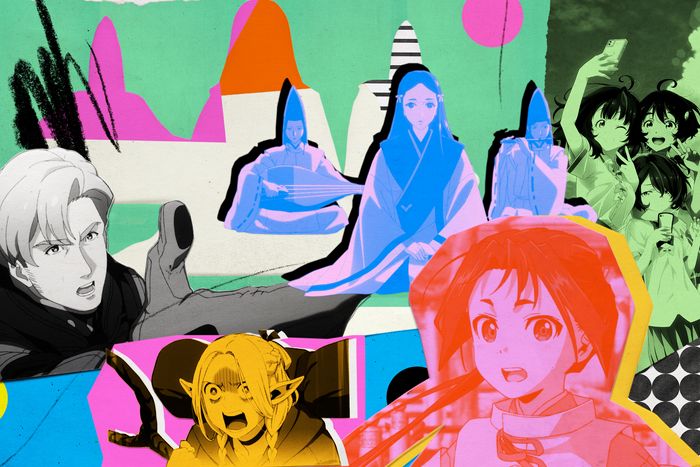
The year in anime got off to a running start. Three of 2024’s very best shows ran simultaneously with a bevy of lavishly animated and deeply considered high-fantasy series. That was only the beginning of some lovely bits of synchronicity. Next came several historical dramas playing with the real past and fictional alike. Later, old favorites made triumphant returns with Dragon Ball Daima and the pastel-colored remake of Ranma ½, comfortably sitting alongside a younger generation of exciting and idiosyncratic manga adaptations. As ever, there’s been so much great work this year that it’s almost impossible to narrow it down to a clear, decisive top ten, as some brilliant work still lies just outside those margins. Ultimately, it was the series that had the most creativity and depth to its fantasy world that came out on top.
10.
The Elusive Samurai (Crunchyroll)
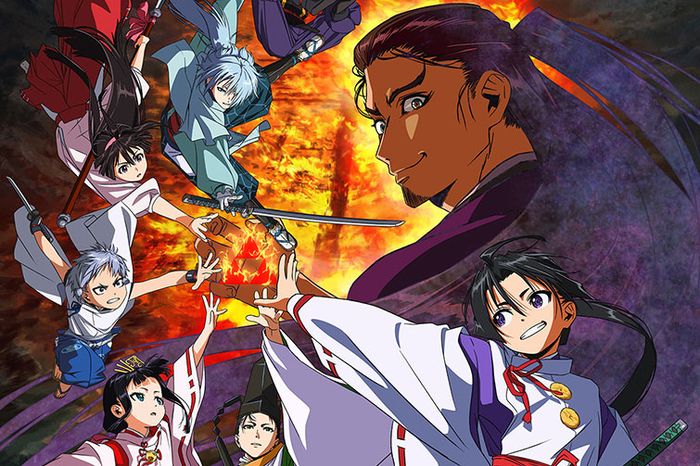
The frequently goofy and energetic direction of The Elusive Samurai belies a dark story: a fictional spin on the life of the real samurai Tokiyuki Hōjō, whose family and clan is massacred by the traitorous Ashikaga Takauji in service of the Emperor dismantling the shōgunate. It displays the violence of Japan’s feudal period without so much as flinching, though it keeps a modern perspective through little meta-jokes (in the fourth episode one character frets about how a dog-shooting competition looks to the 21st-century viewer). It’s elevated by its visual craft, full of striking symbolism, while its movement is precise and detailed when it’s not playing with wildly exaggerated expressions. Not to mention it feels incredibly varied — the flourishes of action are emphasized by exciting and expressive switch-ups in art style.
As the show pivots between these stylized break-out sequences, it also switches between genuinely distressing violence to broad cartoonish high jinks enough to induce whiplash. But it’s so delightful in motion that those qualities are easy to forgive. On top of that, its joyous, rhythmic opening and ending credits are “best of the year”–worthy on their own.
9.
Dead Dead Demons Dededede Destruction (Crunchyroll)
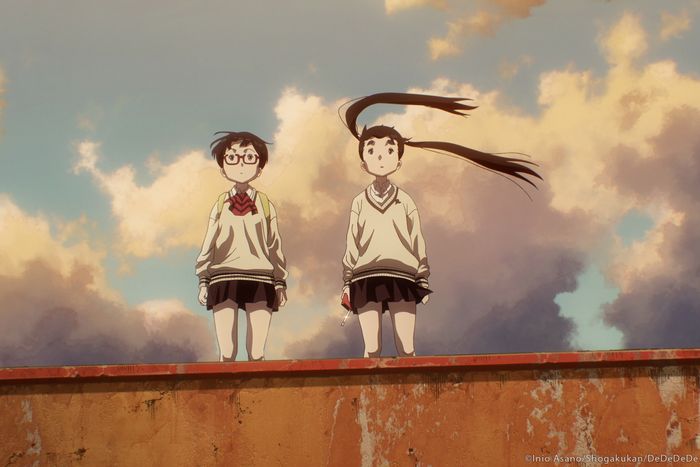
Though I’m resisting the urge to place this series higher in the list for the alliterative potential of pairing it with No. 3 (Dan Da Dan), Dead Dead Demons Dededede Destruction is one of the finest and most underrated series of the year. The first of manga author Inio Asano’s works to be adapted to anime; it’s a darkly funny — and often just dark — visualization of how we might react to the end times.
Aliens suddenly appear over Tokyo, and the world reacts with the expected hostility and xenophobia, but after that initial chaos, that terrifying anomaly simply becomes a part of everyday living. It’s a particularly incisive show about living digitally: One character arc is a case study in radicalization through fringe online pundits. Because of that constant access to morbid and often false information, Kadode, her best friend, Ouran, and the rest of the principal cast of teenage girls both live with and live apart from the paranoia the alien ship provokes. They live like they always have but also don’t dare to think about the future, because they know they might not have one. The frenzied xenophobia and general slide into reactionary attitudes is an unsettling mirror to the real-world cultural trends festering in the 2020s. This series (dededede)deserves more attention.
8.
Makeine: Too Many Losing Heroines! (Crunchyroll)
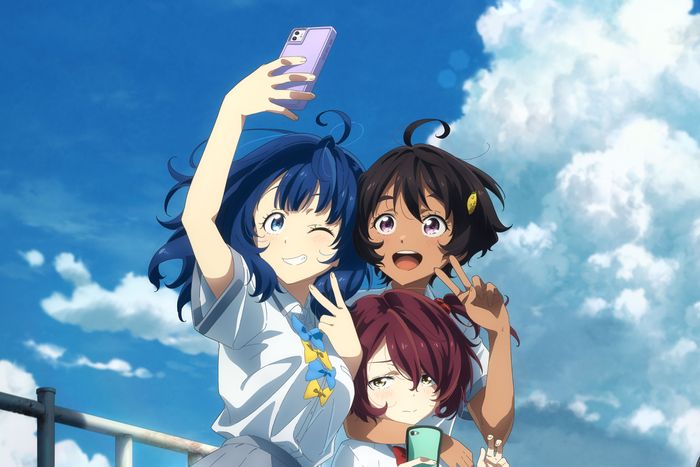
Anime isn’t lacking for lovestruck teenagers acting like morons, but Makeine: Too Many Losing Heroines! feels like it sets the gold standard for likable doofuses making bad decisions in the name of romance. As the title suggests, the show takes interest in the losers of love triangles, untangling the complicated feelings of lifelong friendships and rivals, the humiliations of being unlucky in love, and how to move on from this rejection.
The show is empathetic and funny as it bears witness to this emotional anguish. Its main character, Kazuhiko Nukumizu, serves as a reluctant counselor to the rejected lovers. He’s all too happy to fade into the background, but this show finds its hook in how he gets swept up in everybody’s drama, whether he likes it or not. This continues to pile up throughout the season, building an ensemble cast of endearing agents of chaos who are reeling from the sting of unreciprocated love . Where Makeine’s contemporaries (like Shoshimin, which is on our longlist) searched for little moments of beauty in the halcyon days of high-school environs, Makeine runs headlong into its indignities — Nukumizu’s awareness of rom-com clichés doing little to insulate him from his weirdo high-school peers who can’t help but instigate them.
7.
Sound! Euphonium, season three (Crunchyroll)
Though moments in its story have been bridged by feature films (including the phenomenal Naoko Yamada spinoff, Liz and the Blue Bird) and an OVA, Sound! Euphonium hasn’t been released in weekly episodic form since 2016. The wait for season three proved worth it, however — from its very opening, the Kyoto Animation production is as lovely as ever. The instruments of its big band gleam with resplendent light, rendered in breathtaking detail bordering on photographic but without sacrificing expressivity for rigid realism. Its direction is well-considered — paying close attention to expressions both broad and minute, physical and facial gestures alike.
In this season, Kumiko is now the president of the Kitauiji High School band and coming to grips with leading the club that she was once just finding her footing in. Even with that new authority, the goal of winning gold in a competition comes with an emotional cost. The banter may be cute, but the show threads anxieties throughout its ensemble cast, like the nagging stress of feeling replaceable, with the pressure that there’s always someone just as (if not more) talented than you waiting in the wings. Not only that, but there are episodes that find a fascinating and delicate balance between idealism and pragmatism, between finding competitive fire without compromising the joy of actually playing. It’s a gentle show, but one grounded in believable uncertainties, tying a passion for music together with the growing pains of adolescence.
6.
Brave Bang Bravern (Crunchyroll)
Three words: gay giant robot. From industry legend Masami Ōbari comes Brave Bang Bravern!, which not only has a flashy super-robot invading the military setup of a “real robot” anime but also has that same super-robot be in love with his pilot. The boisterous sentient alien mech named Bravern comes crashing into the lives of pilots Isami and Lewis Smith, quickly forming an attachment to the reluctant Isami, leading to a man-on-robot romance for the ages.
Bravern stands out for its knowing but earnest absurdity, creating gags that could only come from an immense love for the conventions of the genre. To everyone’s bemusement, Bravern insists on yelling all of his attack moves while hilarious cutaways reveal that he plays his own theme music and projects his own logo behind him when he transforms. The show gets a lot of mileage out of its quirky giant robot that’s also a mecha otaku, passing time by building model kits in the basement and thinking of something cool to do on his next fight. (He also knows things that a giant alien robot shouldn’t: like plot devices from James Cameron’s The Abyss).
Even if you’re unfamiliar with the sorts of shows Ōbari is parodying here, it’s hilarious to see Bravern guiding the reluctant, taciturn Isami through the etiquette of being a super-robot pilot. It also boasts one of the most spectacular end-credit sequences of the year, which really should be seen rather than described. So crack open that ice-cold Kona Big Wave, and enjoy.
5.
The Apothecary Diaries (Crunchyroll)
In its second part, The Apothecary Diaries continued to impress with the depth of intrigue and world building of its clever medical mysteries. The series takes the joys of a procedural and supplants them into a faux-feudal Chinese pavilion, its main character, a young apothecary named MaoMao, working as a poison taster, then lady-in-waiting in a palace annex reserved for the emperor’s concubines.
The analytical detachment of the medical enigmas in the first part of The Apothecary Diaries take a turn for the more personal in this year’s episodes, as MaoMao’s familial ties to the palace are gradually revealed. It’s through the complications of those relationships that a new, overarching mystery is built. It’s anchored by some excellent character work; MaoMao’s process and intuition is satisfying to see in motion. The pragmatic observations that she makes connect the big picture to the personal lives of the people who are sequestered away in the pavilion, the concubines locked in a gilded cage. It’s not all so serious; the show finds levity in the playful friction between MaoMao and her supervisor Jinshi, both oddballs in their own way. For a show about medicine and poison, it sure does go down easy.
4.
Frieren: Beyond Journey’s End (Crunchyroll)
Much like the title elf herself, Frieren: Beyond Journey’s End stayed as spritely as ever throughout a rather long (28 episodes!) but captivating season. Where the first half of the season was split into smaller quests, the second expands into a longer arc. It turns out that Frieren, in her centuries-old age, doesn’t have any kind of government-supplied proof of her aptitude for magic. Frieren and her longtime protégé, Fern, sign up for the test and meet a host of colorful new characters.
In its first part, Frieren was one of the most beautifully made anime series of 2023, and it continues to be in its second, even if it feels as though it drifts toward more standard fantasy. This half lost some of the melancholy of the first, which perhaps makes the series fall short of the uniqueness factor of Delicious in Dungeon (see below), but its more traditional adventuring still proved winsome. Under the eye of series director, Keiichirō Saitō (Bocchi the Rock!), the visual presentation is immaculate, with painterly backgrounds and articulate character animation, as well as a delightful score from Evan Call with sounds that feel ripped from the past: fitting for a show about a bookworm who is over 1,000 years old.
There’s a healthy split between quiet introspection and kinetic, smartly choreographed action spectacle. The new arc leans into this excitement with a renewed focus on mage combat, with fights that unfold like hyper-mobile battleships moving against each other, spells unleashed with sudden explosive power. Watching these psychos size one another up is fun, yet the show never feels taken over by blunt force and spectacle. At its core, Frieren is still a show about time threatening to leave you behind, something it tackles in ways both small and frighteningly big.
3.
Dan Da Dan (Netflix, Crunchyroll)
A show that’s horror-meets-sci-fi-meets-action-meets-romantic-comedy, Dan Da Dan is a lot. But it handles its many digressions with grace, both on the page and in Science Saru’s adaptation. Each episode tackles the paranormal with an irreverent and raunchy sense of humor, utilizing Saru’s typically loose animation style, bold color choices, and art direction as it adapts Yukinobu Tatsu’s hit Shonen Jump comic. With its interests in the arcane, its pulsing score from Kensuke Ushio (who at one point pulls out an astonishingly funny dance remix of Rossini’s “March of the Swiss Soldiers”) and a character with the demonic power of running really fast, it overlaps a little with the studio’s Devilman Crybaby. Still, Dan Da Dan combines so many things — actual folklore with a long list of cultural obsessions beginning with Ultraman and acting legend Ken Takakura — to the point that it feels completely one of a kind.
The series starts with two teenagers, Momo Ayase and Ken “Okarun” Takakura arguing over whose occult belief is real. It turns out they both are, as one gets abducted by a yokai and the other by aliens. Once that wild prologue is over however, Dan Da Dan turns its (evil) eye to a story just as unhinged: Poor Okarun finds out after his paranormal encounter that his balls are missing, and so the hunt begins to get them back. If this all sounds juvenile, that’s because it is, and willfully so. But there are things that Dan Da Dan treats seriously and with sincerity like its tender central relationship, which is where Dan Da Dan gets its real fire; the friendship between Momo and “Okarun” has the beginnings of a genuinely sweet romance. A standout seventh episode demonstrated the show has higher ambitions still: using a unique perspective to explore the morbid tragedies of ghost stories, interested in the friction between folklore and the modern day. All this from a show about incomprehensible forces preventing a teenage boy from getting his balls back.
2.
Yatagarasu: The Raven Does Not Choose Its Master (Crunchyroll)
There may be more visually sumptuous animes this year, but Yatagarasu: The Raven Does Not Choose Its Master is almost unrivaled as far as writing goes. It begins like a fable: A boy and his ailing brother are rescued by a man who can turn into a giant golden raven, only for the boy to forget it ever happened though they’re fated to meet again. But this is also the beginning of the series’ various tonal and narrative twists, as it quickly turns from that idyllic setting to a cold war for succession, with various people around the palace and its less affluent surroundings caught in the crossfire. Yatagarasu patiently and deliberately creates a compelling court drama in which the ritual, ceremony, and propriety are covers for the same ugly human impulses that are anywhere else.
The series is set in Yamauchi, a country split into four houses with a mountain palace unifying them in the middle. Ruling over it is a hereditary monarchy, the descendants of Yatagarasu, mystical three-legged ravens (named for the Shinto god) that could turn into humans, ones that built the lands their descendants now squabble over. The monarch is always the k’inu, a golden raven. Everyone else jostles for whatever power they can grab. That push and pull is shown with propulsive momentum, each episode a revelation about the truth of the fictional world being built, simple conversations and monologues transforming into edge-of-the-seat thrills.
1.
Delicious in Dungeon (Netflix)
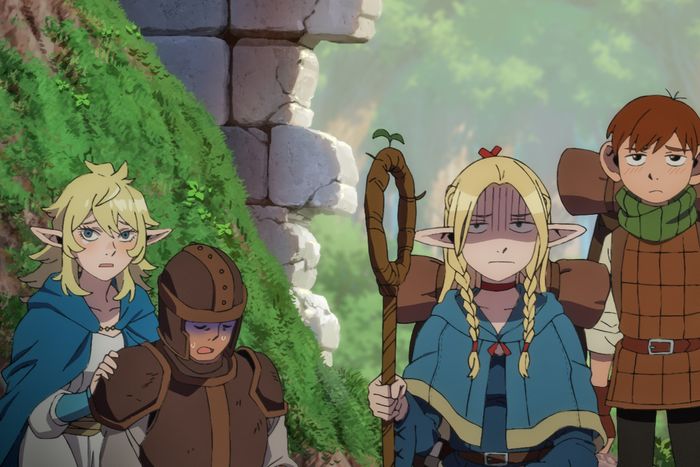
This adaptation of the excellent Ryoko Kui manga from Studio Trigger (Cyberpunk Edgerunners) and director Yoshihiro Miyajima quite literally makes a meal out of the logistics of tabletop fantasy RPGs, with its main cast learning how to cook monsters in order to survive a trip down to the lowest depths of an incomprehensibly large dungeon. After a disastrous encounter with a dragon that results in his sister being eaten alive, the human Laios, the elven mage Marcille, and the halfling Chilchuck venture back into the dungeon to rescue their comrade with the assistance of the dwarven cook and forager Senshi.
What follows is part traditional fantasy adventure, part cooking anime as each episode — titled after whatever meal they’re having — follows the gang through the unique environment of each new level of the dungeon. The show’s second half, however, is where the real meat of the series is: While still structured around culinary antics, it includes compelling and expansive fantasy world building as the party stumbles across long dormant mysteries about the foundation of this underground world.
It has such a strong and unique sense of identity, one that stands out even as it juggles action, comedy, and horror — all of the food groups! — not to mention a sense of genuine wonder in the exploration of each layer of the dungeon. It’s the same appeal as Kui’s manga, in which every chapter is artful and funny and brings something new and exciting, brought to life expressively both in its artwork and in its dynamic, laugh-out-loud voice performances in its subbed and dubbed versions alike. It arrived early in 2024, but there’s no other show that reached the hilarity, creativity or depth of the five-course anime meal that is Delicious in Dungeon.
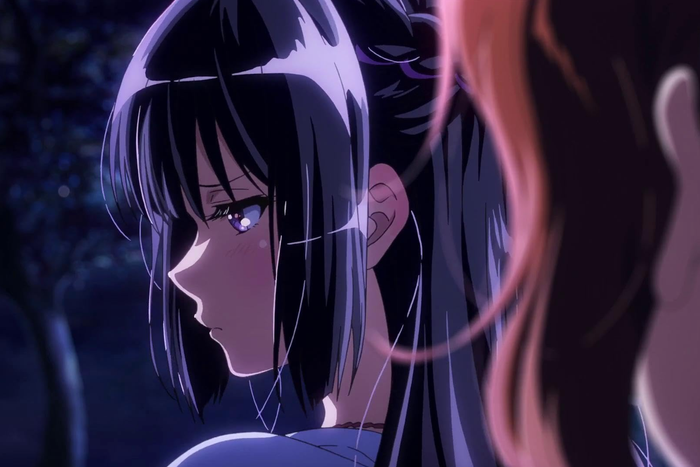
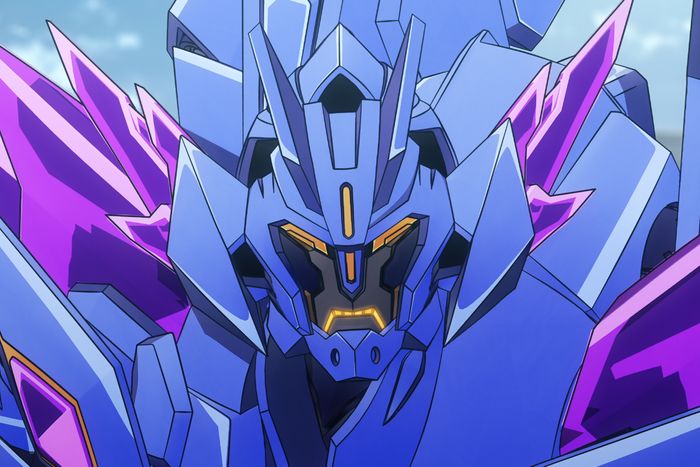
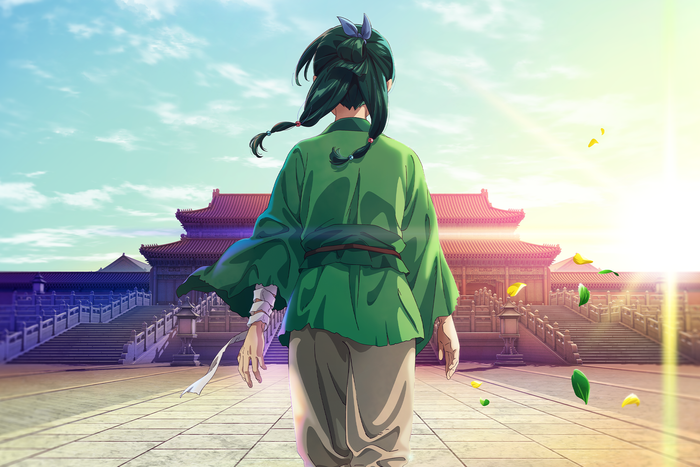
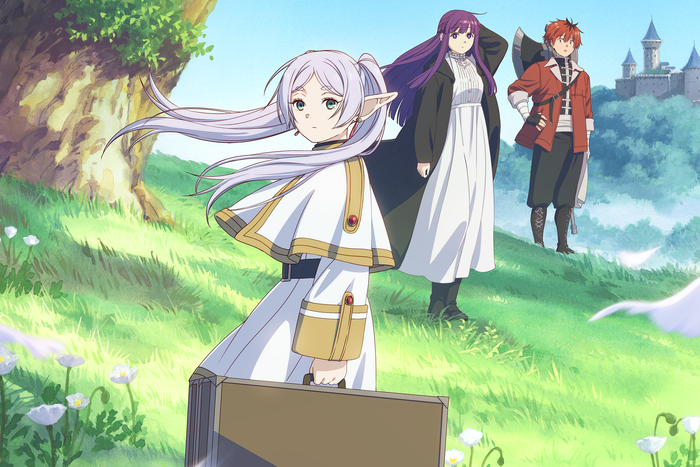
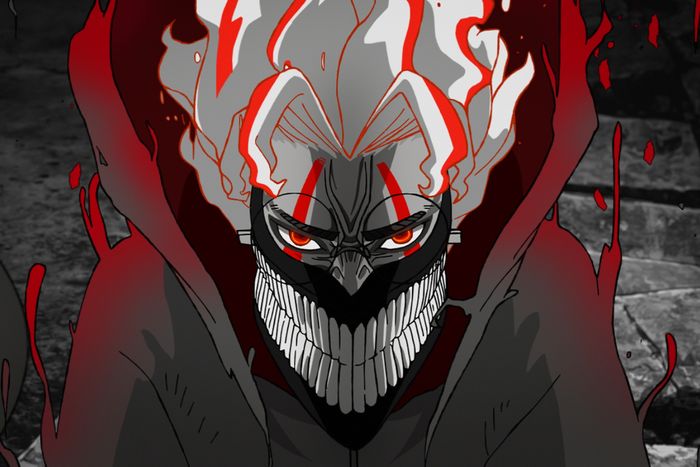
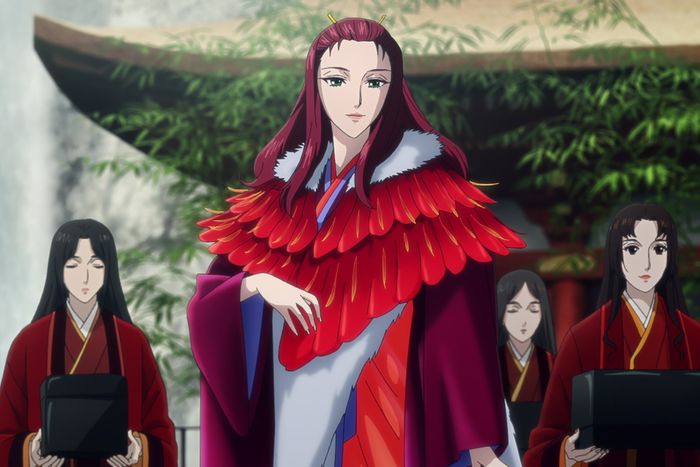
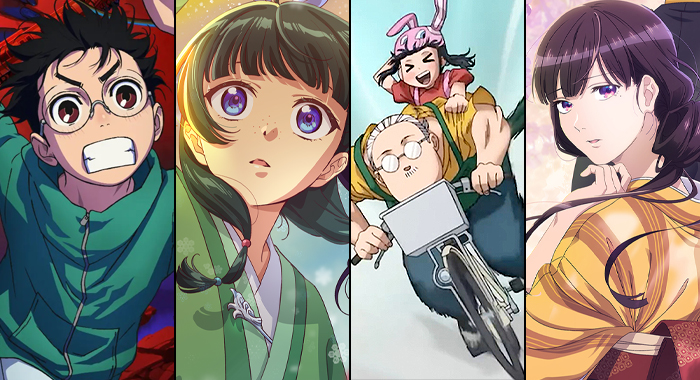


No comments:
Post a Comment